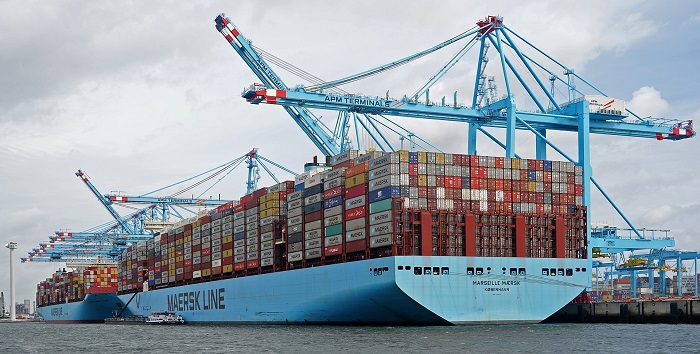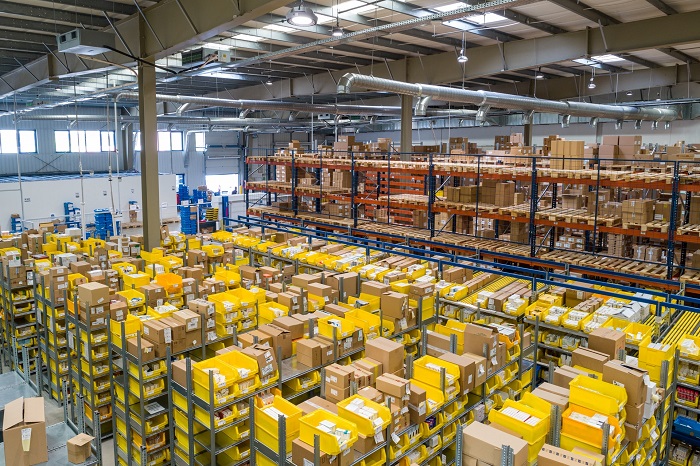ISABEL RUBIO ARROYO | Tungsteno
A Christmas without presents. Although this doomsday scenario may seem impossible at first glance, it could actually happen if there were to be a major breakdown in global logistics. Currently, the global chip crisis, the increase in demand and the collapse of ports threaten to jeopardise if not this holiday, perhaps some people’s hopes for it. We analyse the reasons for this crisis, the possibility that some orders may be delayed and whether this situation could increase the prices of some products.
From container shortages to the collapse of ports
The demand for container ships has skyrocketed this year, reaching the highest figures in history. In the first half of 2021 it was up 790% compared to the same period in 2020, according to the consultancy VesselsValue. Among the possible causes of this increase, the consultancy points to the accident involving one of the world's largest cargo ships. On March 23, the Ever Given became wedged in the Suez Canal. The theory goes that after this incident some businesspeople decided to opt for medium-sized vessels rather than large ones.
In addition to the shortage of containers, some ports in China and the USA have become clogged, partly due to outbreaks of COVID-19. Stavros Karamperidis, professor of maritime economics at the University of Plymouth, explains that China has eight of the ten busiest ports in the world and they are operating at far below normal capacity due to pandemic restrictions. "From Shanghai to Hong Kong to Xiamen, ships are in long queues to unload," he says.
Jim Bureau, CEO of Jaggaer Technology, a U.S. procurement firm, says China is an important component of the global supply chain: "Any shutdown or delays in China have the potential to delay finished goods by two or three tiers out." But the problem goes beyond the Asian country. For example, the U.S. West Coast "is also experiencing major congestion." Increased purchases during the pandemic and a lack of carriers and trucks have caused chaos at the Los Angeles and Long Beach port terminals, through which 40% of containers enter the United States.

Demand for container ships has soared in the first half of 2021, according to the consultancy VesselsValue. Credit: Maersk Mc Kinney Möller & Marseille Maersk.
What if the gifts don't arrive or are more expensive?
In recent months, panic over potential shortages has exacerbated the collapse of ports and supply chains. "Suddenly retailers and manufacturers are overordering because of these supply chain issues, and that’s just leading to essentially an even worse scenario," says Jonathan Savoir, CEO of supply chain technology firm Quincus. Because of the backlog of containers at ports, ships are spending more time than usual unloading and departing. This causes disruptions to shipping line schedules and further reduces vessel availability.
This situation threatens to lead to order delays. A container's journey from Asia to the United States usually takes just two weeks, according to Peter Sand, chief analyst for the shipping association BIMCO. But right now it's taking about 70 days from "when the product leaves the manufacturing site, to when it arrives at the sales point in the US." This means that even if a popular toy leaves China today, it may not reach U.S. or European stores in time for Christmas. In addition, the chip shortage has put the entire technology industry on edge, causing delays in the manufacture and release of computers, mobile phones or consoles.

The supply chain crisis lengthens the time it takes for a package to reach its destination. Credit: Unsplash.
The container shortage has also caused shipping rates to go "through the roof," according to Karamperidis. Shipping companies now charge higher freight rates to cover the costs. While some companies are seeking alternative routes and modes of transportation to get products to stores—for example, planes or trains—distribution problems are simultaneously affecting most parts of the supply chain.
"Things that take longer tend to cost more, so being forced to make decisions to change vessel itineraries and getting held up in congested ports can be costly for shipping lines," says Charlotte Cook, commercial director at VesselsValue. In addition, retailers make the largest proportion of their sales at Christmas: "If retailers struggle to source enough stock and profit margins lessen, we could see the price trickle back to the consumer."
It is still too early to know to what extent this collapse in the supply chain will affect a holiday that, if anything, is characterised by gift giving. "The longer this shipping crisis continues, the more that Christmas will be in trouble," says Karamperidis. There are likely to be delivery delays and "out of stock" signs hanging next to products that often travel between continents—from clothing and toys to technology products. Buying gifts as early as possible, opting for local retailers or going to physical stores are some of the keys to prevent this global crisis from ruining Christmas.
· — —
Tungsteno is a journalism laboratory to scan the essence of innovation. Devised by Materia Publicaciones Científicas for Sacyr’s blog.
